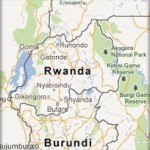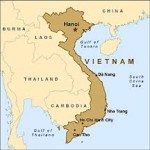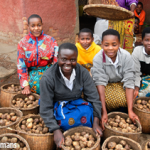Rwanda is making significant strides at developing a sustainable food system. Centering initiatives on its flagship development program, Vision 2020, the government has placed high priority on land tenure reforms, rural development, agricultural investment, and climate-smart and gender-sensitive approaches. Increasingly, the government is encouraging private sector involvement by reducing barriers to doing business, thus attracting […]
Vietnam’s Food System Transformation
By successfully implementing a series of land tenure and market reforms, Vietnam has vastly transformed its food system. In particular, innovative policies and technologies have improved the rice and coffee sectors, and the country has become among the world’s largest exporters of both commodities. The government pursued smallholder agriculture-led growth with nutrition-sensitive approaches, which led […]
Brazil’s Food System Transformation
Brazil’s food system transformation was built upon foundations of strong macroeconomic policies, political stability, and forward-thinking investments in agricultural R&D that helped spur key innovations. Complementary policies supporting the agriculture sector via rural credit systems, public food acquisition, extension, risk management, and adoption of climate-smart approaches have helped to advance transformation. Through remarkable agricultural productivity […]
Background Documentation
Compact2025 is an initiative for ending hunger and undernutrition by 2025. It will bring stakeholders together to set priorities, innovate and learn, fine-tune actions, build on successes, and synthesize sharable lessons in order to accelerate progress. Find here the background documentation on Compact2025. Compact2025 Briefing Note in English (PDF 514 KB) | Chinese (391 KB) PowerPoint […]




